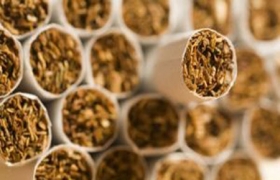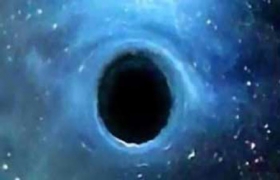
E-cigarettes linked to high odds of smoking among U.S. teens: study
The study of nearly 40,000 youth found that e-cigarette use among the adolescents doubled between 2011 and 2012, from 3.1 percent to 6.5 percent.
Obama, European leaders urges dialogue between Russia, Ukraine
"The leaders expressed their grave concern over Russia's clear violation of Ukrainian sovereignty and territorial integrity, which is a breach of international law and a threat to international peace and security," the White House said in a readout of the talks. "The leaders stressed that dialogue between Ukraine and Russia should start immediately, with international facilitation as appropriate."
Malaysia inaugurates longest bridge in Southeast Asia
The second Penang bridge is the longest bridge in Southeast Asia
Black holes blow stronger winds than previously thought: study
Black holes can release more energy into the galaxies they live in than previously thought, a new study said Thursday. The discovery, published in the U.S. journal Science, will help astronomers better model the evolution of black holes over time, and it will also help them better understand how these mysterious regions affect their host galaxies. Black holes are places in space where gravity pulls so much that even light cannot get out. Black holes grow when gas in space flows or accretes onto them. The gas inside gets so hot it emits radiation. According to a theory of physics called the Eddington limit, the amount of radiation flowing outward from a black hole cannot exceed a certain limit or it will blow the inflowing gas away. The limit is based on the black hole's mass. However, whether a black hole's kinetic energy, in the form of jets and winds, is controlled by the same limit has been unclear. To shed some light on the matter, scientists led by Roberto Soria of Australia's Curtin University used telescopes to study the outflow of a black hole in galaxy M83 for more than a year. By analyzing the gas flowing into the black hole, they figured out the black hole's weight as less than 100 times that of the Sun. The researchers compared the mass of the black hole with its outgoing kinetic power, which they were able to infer in part by looking at the light around it. The kinetic power flowing out of the black hole was higher than the Eddington limit for a black hole of this mass, the researchers found. These results demonstrate that black holes can "inject more energy into the surrounding medium than would be inferred based on their Eddington limits," the researchers wrote in their paper. "The existence of super-Eddington mechanical power is important for the modeling of jet production mechanisms, as well as the evolution of fast-growing supermassive BHs (black holes) in the early universe, and their effect on their host galaxies," they added. Xinhuanet
N Korea tests missiles amid S Korea-US exercises
A ministry spokesman said that the missiles were fired off the east coast of North Korea.
Ancient woodland losses 'not accounted for', say campaigners
The Woodland Trust says that systems are so poor, the government cannot say how much ancient forest has disappeared in the last 10 years.
Cambodia: CPP, CNRP discuss electoral reform
The ruling Cambodian People’s Party (CPP) and the opposition, Cambodia National Rescue Party (CNRP), decided to meet negotiations again to hold talks to solve issues that have lingered since the election last year.
Thailand to issue bonds to fund rice programme
The Thai government is preparing to issue bonds worth up to 100 billion baht (3.1 billion USD) in a bid to raise funds for the debt-plagued rice support programme, according to the National News Bureau of Thailand.
Ukraine parliament names acting president, seeks government
A general view shows the Independence Square in Kiev February 23, 2014.
Mekong Delta succeeding in rural development
Mekong Delta provinces have so far poured more than 91.8 trillion VND (4.1 billion USD) into building new-style rural areas in 1,300 communes, said the Steering Committee for the Southwestern Region.
H1N1 flu resurges in U.S., hitting younger people hard: CDC
This year's flu season in the U. S. has hit younger- and middle-age adults harder than in the past three years, as a result of the resurgence of the H1N1 virus that caused a worldwide pandemic in 2009, the U.S. Centers for Disease Control and Prevention (CDC) said Thursday. People aged 18 to 64 represented 61 percent of all hospitalizations from influenza, up from the previous three seasons when this age group represented only about 35 percent of all such hospitalizations, the CDC said. Influenza deaths followed the same pattern with more deaths than usual occurring in this younger age group, said the CDC, failing to provide an exact number of deaths caused by the flu. "Flu hospitalizations and deaths in people younger- and middle- aged adults is a sad and difficult reminder that flu can be serious for anyone, not just the very young and old," CDC Director Tom Frieden said. The CDC urged that everyone should be vaccinated as a CDC study, also released Thursday, found that flu vaccination may reduce a person's risk of having to go to the doctor for flu illness by about 60 percent across all ages. It recommends that everyone six months and older get an annual flu vaccine. "The season is still ongoing. If you haven't yet, you should still get vaccinated," said Frieden. Typically, the flu season ends in March or April in the U.S. Xinhuanet
South Koreans head North for family reunions
The reunions, which come after North Korea called for better relations between the two sides, are taking place from 20 to 25 February.
































